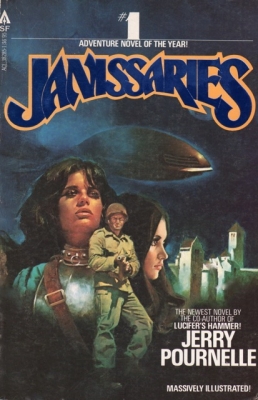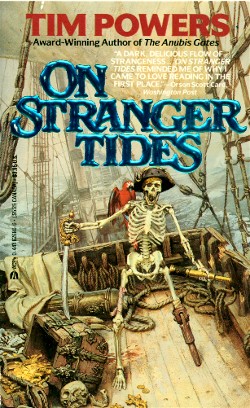The Golden Age of Science Fiction: Novels of 1979
Taking another break from award winners, here’s a look at novels published in 1979 that did not win any awards.
C.J. Cherryh published Hestia, a stand-alone about an engineer, Sam Merrit, who travels to the title planet to build a damn to help the human colonists. Upon arrival, Merrit realizes that the dam will not only prove to be the panacea that is sought, but would also destroy the local indigenous species. Cherryh uses the novel to explore personal and ecological responsibility and the sense of entitlement the colonists have.
Jerry Pournelle’s novel Janissearies is the first of the similarly titled trilogy, although it is also set in the wider world of his Co-Dominium universe that began with his novel King David’s Starship. The novel follows a group of American soldiers who have been rescued from an ambush in Africa and given the chance to put their talents to use in a medieval level society among the stars. Although Pournelle’s main character faced mutiny, he wins through in the end, establishing himself as the undisputed leader of the force.
Kindred, Octavia E. Butler’s time travel novel that shuffles Dana, a twentieth century African-American author, between her own time and the antebellum South was published in 1979. The novel offers a look at the sort of compromises Dana must make to survive as a slave as be able to continue to exist in her own time. Butler offers a complex view of slavery and race relations in the novel, partly because of the way she has caused Dana’s own existence and fate to be entwined with that of Rufus, the plantation owner.
…




 Extolling the virtues of Tim Powers to this audience is probably preaching to the choir, but if you haven’t yet read On Stranger Tides, get thee to
Extolling the virtues of Tim Powers to this audience is probably preaching to the choir, but if you haven’t yet read On Stranger Tides, get thee to